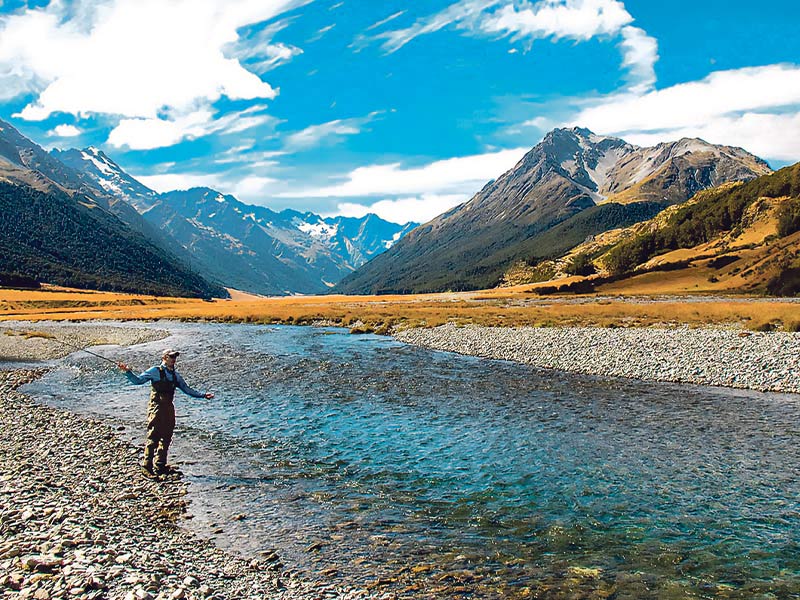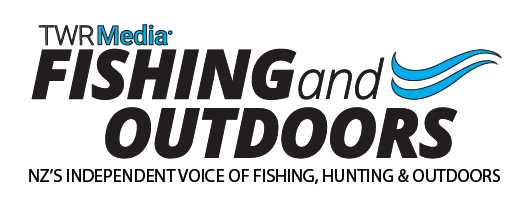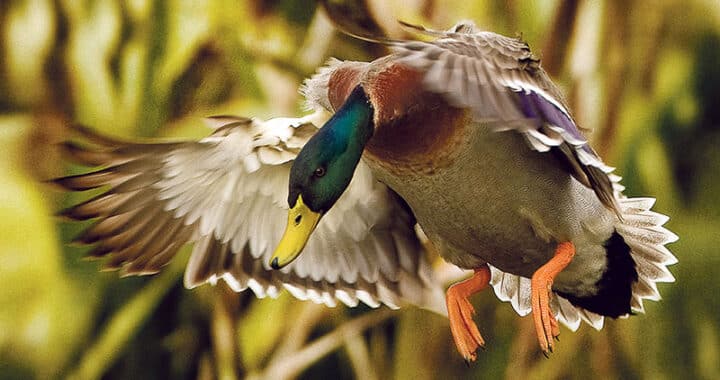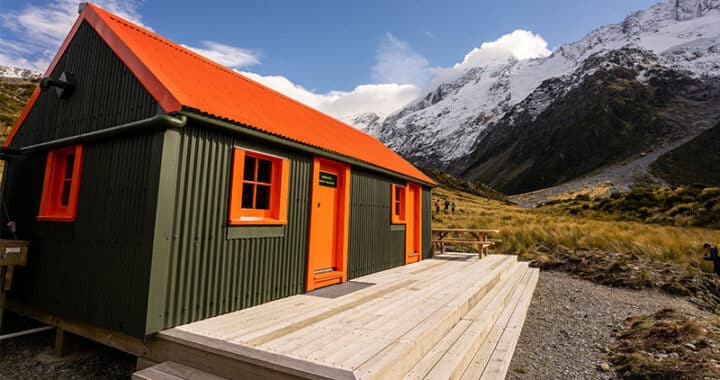Fishing guides breathe sigh of relief as international anglers re-enter NZ
4 min read
Fishing operators are looking forward to welcoming back international visitors this season after the COVID-19 pandemic turned the industry upside down. Photo: Getty Images
After two years of New Zealand’s borders being shut to international tourists, bookings for the fishing season are looking promising – a welcome relief for fishing guides.
Fish & Game NZ chief executive Corina Jordan said 100,000 fishing licences were expected to be sold for this season. About 10% of licence sales would be for overseas visitors, she said.
“This is good news for the wider economy. Research shows international anglers are big spenders, among the highest value tourists the country receives,” Jordan said.
“Many guides are also back to being well booked by overseas clients this season after several years of no tourism, which is great for their businesses and the flow-on economic effects for the regional communities where many are based.”
Prior to COVID-19, thousands of overseas anglers came to New Zealand every year to try their luck in New Zealand waters. However, the guided tour business dried up when the borders closed, with many tour companies losing their business overnight.
The New Zealand Professional Fishing Guides Association membership was made up of 92% overseas visitors, 37% of those from Australia.
In the financial year 2019–2020, Fish & Game received $11 million from both game bird and fishing licence sales. Of that, approximately $1.5 million came from non-resident fishing licences.
In 2020, Fish & Game decided not to increase the cost of fishing licences for that season, due to New Zealanders facing “uncertain economic times”.
Southland Fish and Game manager Zane Moss said in the 2019–2020 season, 2230 fishing licences were sold to non-residents in the province.
For this season, 72 non-resident licences and 2310 resident licences had been sold prior to opening day.
With borders open again, the industry is expecting a steady stream of anglers to make their way back to New Zealand waters.

Tracee Neilson, visitor destination manager for the Nelson Regional Development Agency, said the guided fishing sector was hit hard by the border closures.
“Fly fishing has been a really big focus for us, and that’s always been heavily supported by international visitors so that obviously was quite a significant loss when the borders shut,” she said.
“For fly fishing operators, particularly those with higher-priced accommodation attached to their offering, had to pivot and price more to the market.”
However, with the borders open again, operators in the region are expecting plenty of interest.
“Stoneyfly Lodge and Owen River are very, very full for the coming season; they are thrilled,” Neilson said.
Neilson said tourism operators in the Abel Tasman National Park suffered during the closures because New Zealanders didn’t want to pay for guided experiences – including walks and kayaking trips.
“New Zealanders are definitely getting out in their own backyard, which is encouraging. Kiwis don’t really want to pay for a guided walk or kayak experience, so some operators started to offer self-guided options that are more affordable to meet the demand.”
Neilson said forward bookings were encouraging.
“We’re happy with where we are at coming into the season. The most important market for our region is Australia, the US, Germany, and the UK, and we are starting to see them coming through. We are hopeful we have no other disruptions.”
From April and May 2022, fully vaccinated people from the US, the UK, Australia, and most European countries were able to enter New Zealand with no quarantine or self-isolation requirements.
Felix Borenstein, general manager and owner of Owen River Lodge, said the border reopening meant the 2022/3 fishing season is going to be huge.

“Thanks to the many wonderful international guests who kept the faith that they’d get back to Owen River Lodge eventually – and who therefore took credits rather than refunds – we’re almost completely booked out for January and February 2023,” he said.
Owen River Lodge charges $5075 per person for a two-day fishing package during the summer 2022 season and up to $10,775 for a six-day guided fishing package. The packages include luxury accommodation, all meals, use of lodge facilities and fly fishing equipment, and expert guiding with a senior fly fishing guide.
Local Christchurch fishing guide Ben Haywood said international bookings have definitely picked up now that the borders are open.
Haywood offers a range of guided fishing options from fly fishing for large wild trout or salmon angling in the braided rivers of Canterbury through to catching monster trout in the Mackenzie Hydro Canals and heli fishing, with accommodation options for guests.
He said the COVID-19 pandemic and subsequent border closures had a significant impact on operators.
“International tourists have always had a share of the guided fishing market. With the borders closed the effect on guided fishing bookings was very noticeable,” he said.
However, because New Zealanders were unable to travel internationally, Haywood said there were more Kiwis getting involved and trying a hand at the sport.
“Some did take the opportunity to explore their own country and participate in guided fishing trips,” he said.
“It was great that some New Zealanders supported New Zealand tourism during COVID times, as this assisted many to be able to continue to operate, albeit on a smaller scale.”
The timing comes as Gore puts in plans to become known as the “brown trout capital of the world”, in a bid to attract more international anglers and teach more people how to fish in order to grow the sport.
A report from the Gore District Council said New Zealand’s brown trout fishing attracts big-spending international markets and is worth about $2 million each year to Southland.
Non-resident anglers must apply for a special licence to participate. According to Fish & Game, between 2014 and 2019, there was a 60% increase in non-resident licence sales in Southland, accounting for 25% of all licences sold in the province.



